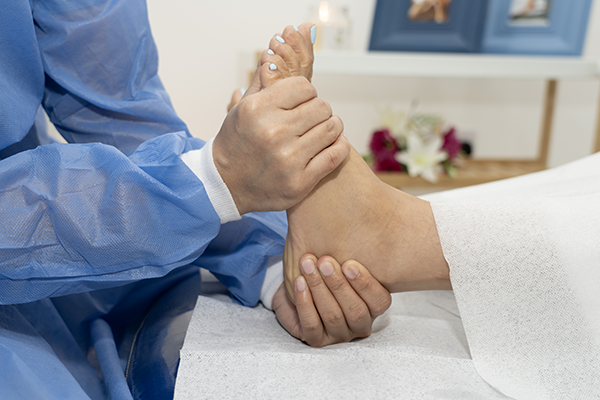
Foot Health and Diabetes: Managing Your Feet with Diabetes
Share
For individuals with diabetes, foot care is not just important—it's essential. Diabetes can lead to a range of complications that affect the feet, including nerve damage (neuropathy), poor circulation, and an increased risk of infections. Proper foot care is crucial for preventing serious complications, such as ulcers and amputations, and ensuring that your feet remain healthy and functional.
One of the most common foot-related complications of diabetes is neuropathy, which can cause numbness, tingling, and loss of sensation in the feet. This loss of sensation can make it difficult to detect injuries, such as cuts, blisters, or sores, which can become infected if left untreated. For this reason, it's important for individuals with diabetes to perform regular foot inspections. Check your feet daily for any signs of injury, redness, swelling, or changes in skin color. If you notice anything unusual, seek medical attention promptly.
Poor circulation is another common issue for individuals with diabetes, which can slow the healing process and increase the risk of infections. To improve circulation, it's important to stay active and engage in regular physical activity. Exercise helps improve blood flow to the feet, which can reduce the risk of complications. However, it's important to choose low-impact activities that are gentle on the feet, such as walking, swimming, or cycling. Always wear appropriate footwear that provides support and cushioning to protect your feet during exercise.
Proper footwear is essential for individuals with diabetes. Shoes that fit well and provide adequate support can help prevent foot injuries and reduce the risk of complications. Avoid wearing shoes that
are too tight, as they can cause blisters and sores. Look for shoes that have a wide toe box, cushioned insoles, and a firm heel counter for stability. It's also important to avoid walking barefoot, even indoors, as this can increase the risk of injury.
In addition to proper footwear, custom orthotics can be beneficial for individuals with diabetes. Custom orthotics are specially designed insoles that provide support, cushioning, and pressure relief, which can help prevent foot injuries and improve overall comfort. If you have a specific foot condition, such as flat feet or high arches, custom orthotics can help correct alignment issues and reduce strain on your feet.
Moisturizing your feet daily is also important for individuals with diabetes, as dry skin is more prone to cracking and infections. Use a moisturizer that is specifically formulated for diabetic foot care, and avoid applying it between the toes, as this can create a moist environment that promotes fungal growth. Keeping your feet moisturized can help prevent dryness, cracking, and the development of calluses.
Regular visits to a podiatrist or foot care specialist are essential for individuals with diabetes. A foot care specialist can provide routine foot exams, treat any existing foot problems, and offer advice on proper foot care. They can also help manage complications, such as ulcers or infections, and provide guidance on maintaining overall foot health.
At Feet Aid, we understand the unique foot care needs of individuals with diabetes. Our medically trained staff specializes in diabetic foot care and offers personalized treatments to help you manage your foot health effectively. Whether you're dealing with a specific foot issue or looking to prevent complications, our team is here to support you every step of the way.
Don't take chances with your foot health. If you have diabetes, proactive foot care is essential for preventing complications and maintaining a healthy, active lifestyle. Book your consultation with Feet Aid today and ensure that your feet receive the care and attention they deserve.
